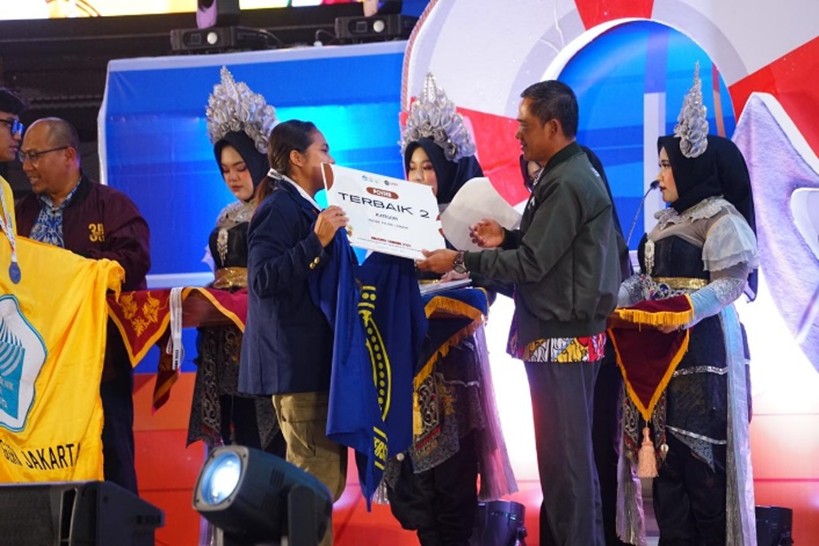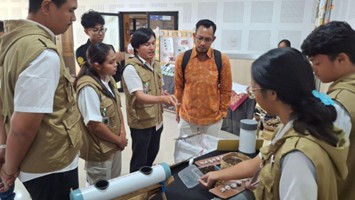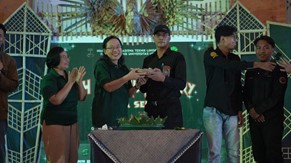Curriculum
CURRICULUM OF ENVIRONMENTAL ENGINEERING STUDY PROGRAM
With the issuance of the Free Learning Guidebook – Independent Campus, Udayana University based on Permendikbud No. 3 of 2020 concerning National Higher Education Standards (SNPT), the Environmental Engineering Undergraduate Study Program has adjusted the curriculum in accordance with the goal of independent learning. In essence, this Merdeka Campus policy gives educational institutions freedom and autonomy from convoluted bureaucratization and students are given the right to study outside their original study program for a maximum of three semesters. For this reason, a more dynamic curriculum and a more effective learning process are needed in accordance with technological advances and the needs of users who are graduates of the Environmental Engineering Study Program. In this regard, the Environmental Engineering Undergraduate Study Program has developed 4 (four) curriculum models, including Curriculum Model 8.0, Curriculum Model 7.1, Curriculum Model 6.2 and Curriculum Model 5.3.
1. Model 8.0 curriculum
The Model 8:0 curriculum is exactly the same as the Environmental Engineering Undergraduate Program Curriculum prior to the Independent Campus policy. The form of learning outside the study program is only in the form of KKN (3 credits) and Practical Work (2 credits) which are offered in semester 7.
2. Model Curriculum 7.1
Curriculum Model 7.1 is defined as having the right of students to study outside the study program for 1 (one) semester or the equivalent of 20 credits. In this model, students of the Environmental Engineering Study Program are directed or recommended to take an internship as a form of Independent Campus. The form of the Independent Campus in Model 7.1 does not have to be an Internship, but can be in the form of another Independent Campus provided that the courses affiliated with the Independent Campus form have been reviewed by the curriculum team and approved by the Coordinator Study Program.
3. Model Curriculum 6.2
Curriculum Model 6.2 is defined as having the right of students to study outside the study program for 2 (two) semesters or the equivalent of 40 credits. In this model, students of the Environmental Engineering Study Program are directed or recommended to take thematic Internships and KKN as a form of the Independent Campus. The pattern of courses affiliated with the Internship in Model 6.2 is the same as Model 7.1. As for the Thematic Community Service Program (KKN) as another form of Independent Campus, some of the affiliated courses in the Thematic Community Service Program are core courses whose application can be used in village development activities and underdeveloped areas.
4. Model Curriculum 5.3
Curriculum Model 5.3 is defined as having the right of students to study outside the study program for 3 (three) semesters or the equivalent of 60 credits. In this model, PSSTL students are directed or recommended to take Internships, thematic KKN, and Research/Research as a form of Independent Campus. The pattern of courses affiliated with the Internship in Model 5.3 is the same as Model 7.1 and Model 6.2. As for the thematic Community Service Program (KKN), the pattern of affiliated courses is the same as Model 6.2. For Research/Research activities as a form of Independent Campus, courses affiliated in this activity are core courses related to laboratory activities. The results of research activities can be used as data in the preparation of a thesis or final assignment so that the thesis courses can also be affiliated with this form of the Independent Campus.
In the Curriculum Model 7.1, Model 6.2 and Model 5.3., several courses will be affiliated and most of the affiliated courses in Internship or Thematic KKN or Research/Research are elective courses. If there are courses that are not checked in the Curriculum Model 7.1, Model 6.2 and Model 5.3 tables but are still related to topics at the Internship or Thematic KKN places or at Research/Research sites, these courses can be affiliated into the activity Internship or Thematic KKN or Research/Research with the approval of the supervising lecturer and the curriculum team.
In providing the final assessment of the Internship or Thematic KKN or Research/Research activities, the supporting lecturer and the curriculum team will provide an assessment rubric to the Internship place or Thematic KKN place or Research/Research place so that the student's final score in affiliated courses is a combination of the lecturer's assessment supervisors and supervisors at the Internship site or at the Thematic KKN site or at the Research/Research site.
To be able to adapt the Merdeka Learning Curriculum – Merdeka Campus, a curriculum repositioning was carried out in the Environmental Engineering Undergraduate Study Program. The distribution of all Curriculum Model 8.0, Model 7.1, Model 6.2 and Model 5.3 courses is shown in Table 12.1. All elective courses can be converted in the implementation of the MBKM Program according to the field of activity carried out. Table 12.2 shows selected courses that can be recognized if MBKM activities lead to one particular area, namely drinking water, waste water, solid waste and air. The list of religious education courses is described in Table 12.3. The overall Curriculum Roadmap for the Undergraduate Program in Environmental Engineering can be seen in Figure 12.1.



FACULTY OF ENGINEERING